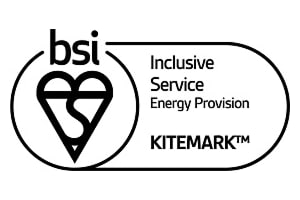
Energy sector
Interested to join the pilot? Get in touch
Creating fair, flexible and inclusive services for all
Creating fair, flexible and inclusive services for all




Contact us today to discuss your requirements with one of our industry experts
New guidance to help organizations identify and meet the needs of vulnerable customers.
As the COVID-19 pandemic has demonstrated, we can all become vulnerable at any time. Ill health, financial hardship, mental health problems or life events such as relationship breakdown can impact anyone, at any time. As consumers, that vulnerability makes it so much harder to make smart, informed choices.
BS 18477 Inclusive Service Provision helps organizations identify and meet the needs of vulnerable customers. In 2022, a new international standard, BS ISO 22458:2022 was published, developed from this ground-breaking British standard. In line with the standard, BSI has introduced the Inclusive Service Kitemark to help organizations demonstrate their commitment to vulnerable consumers.
Superseding BS 18477, BS ISO 22458 provides a framework to help organizations and their employees understand the underlying factors involved in consumer vulnerability, and work to develop processes to help with the problem.
We can all become vulnerable at any time. Ill health, financial hardship, mental health problems or life events such as relationship breakdown can impact anyone, at any time. As consumers, that vulnerability makes it so much harder to make smart, informed choices. That's why it's important to be able to look for an independent mark of trust for reassurance.
BSI provide a robust assessment of organizational process based on outcomes and measure and aligned, where possible, to existing regulations and guidance. In this way the Kitemark ensures that you can identify products that meet the high Kitemark safety, performance, and quality standards. You can have confidence in any provider that is BSI Kitemark certified.
Achieving the BSI Kitemark for inclusive service demonstrates that your organization is compliant to BS ISO 22458 and provides an inclusive service that is available, usable and accessible to all consumers equally – regardless of personal circumstances.
To achieve the BSI Kitemark for inclusive service , you’ll be assessed by one of our expert auditors against the BS ISO 22458 standard. This will include a two-part assessment.
Following a successful recommendation, you’ll be issued your certificate to demonstrate that your services are fair and accessible to all. Instilling your clients with confidence.
Increased accessibility - Focus on how services can be made available and accessible to all. Whether it be an emphasis on using clear, concise language to help those with literacy/cognitive problems or providing multiple communication channels.
Strengthen skills - No business wants to cause its customers needless distress or difficulty. Staff morale and skill levels improve when they are equipped to help people. Employees should be authorized to exercise discretion in managing vulnerable customers, which can be rewarding and interesting.
Compliance - BSI has been working collaboratively with key sector regulators to ensure that the new Kitemark requirements align to their guidance, and licencing rules and codes of practice. This includes the FCA Consumer Duty, which sets higher and clearer standards of consumer protection across financial service as well as the key regulatory requirements of Ofgem, Ofwat and UREGNI.
Brand protection - Avoid negative publicity as a result of getting customer service wrong. We’ve all seen newspaper consumer interest stories about elderly people being treated poorly by utility companies, or recently bereaved people given harsh treatment. While this level of service is seldom deliberate, having processes in place will help to prevent this damaging publicity.